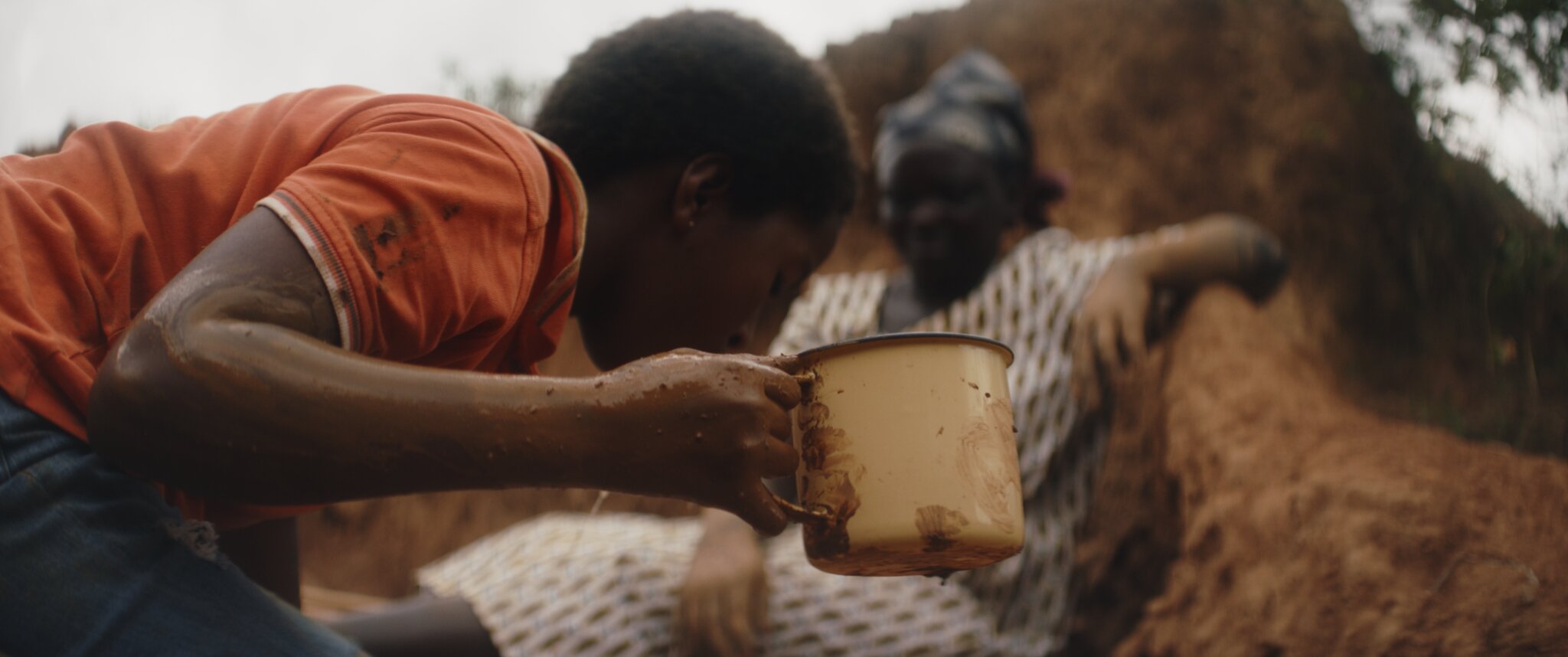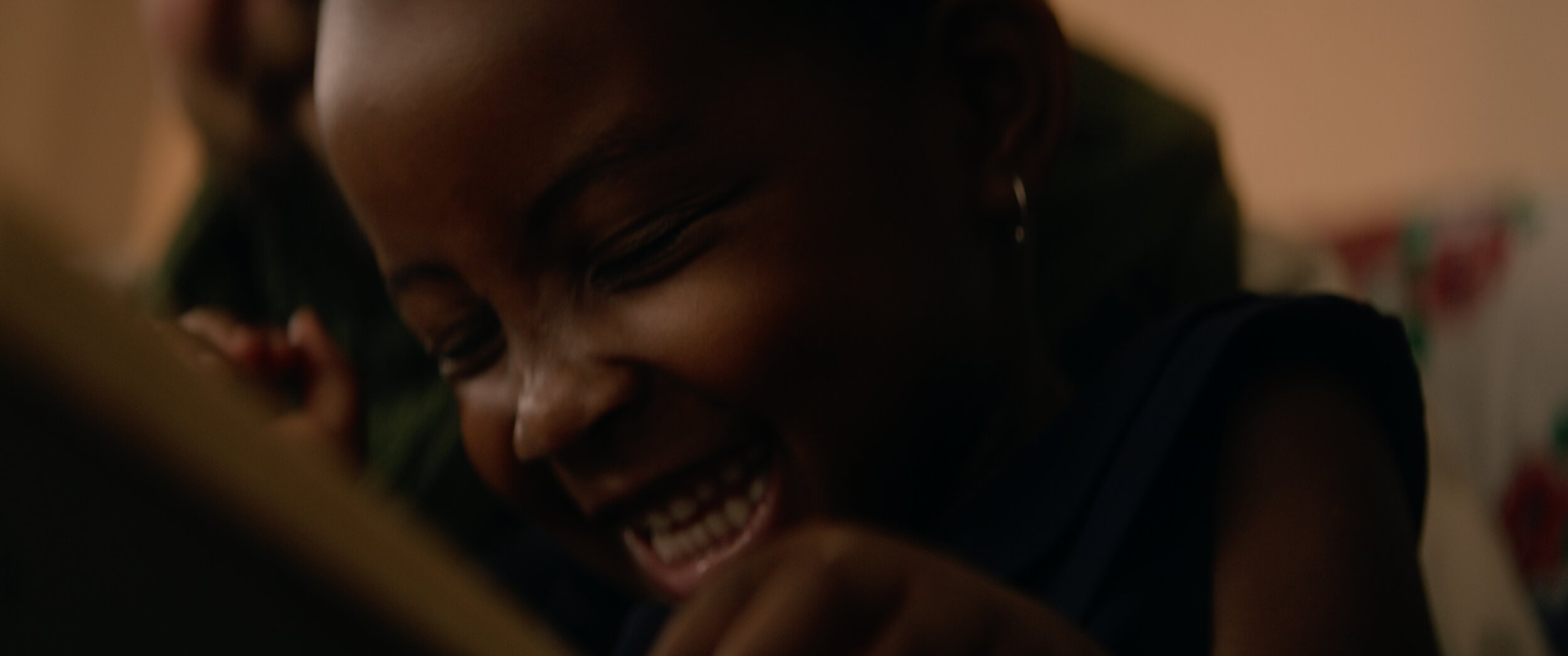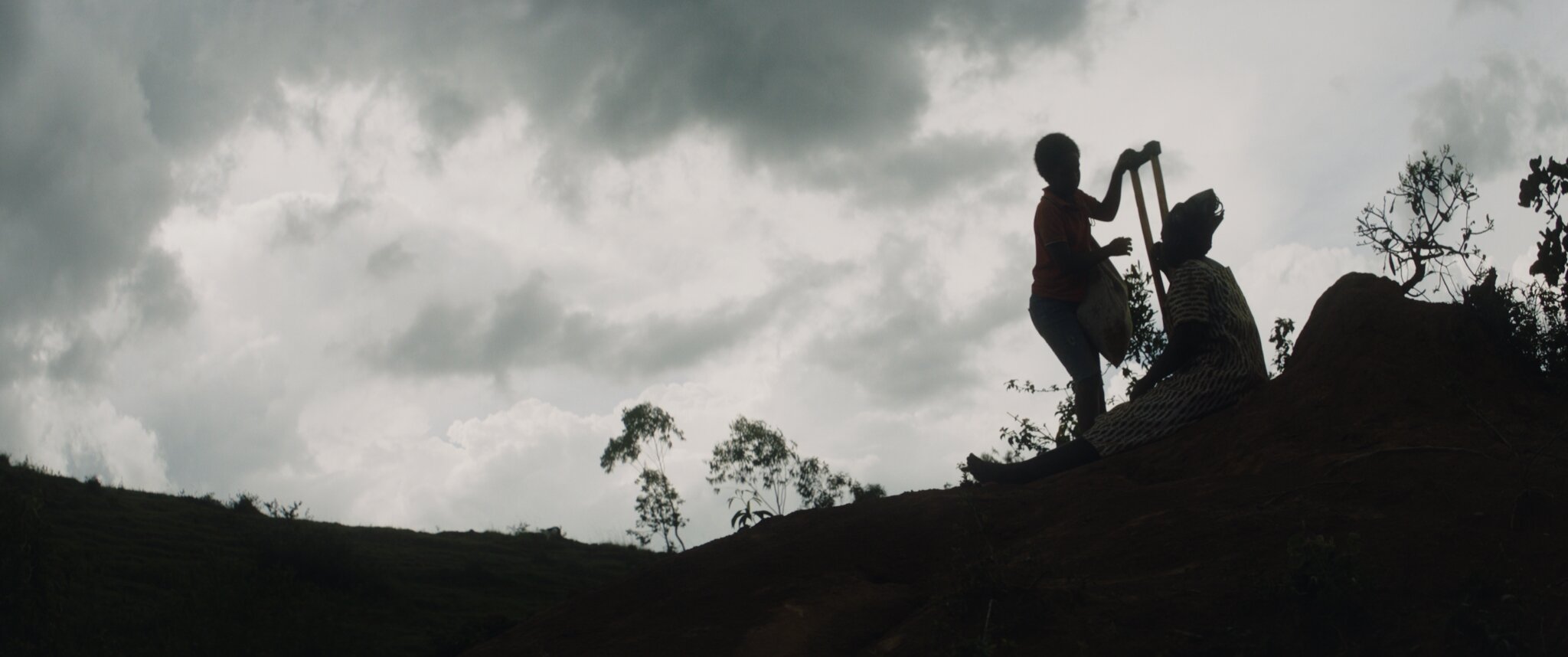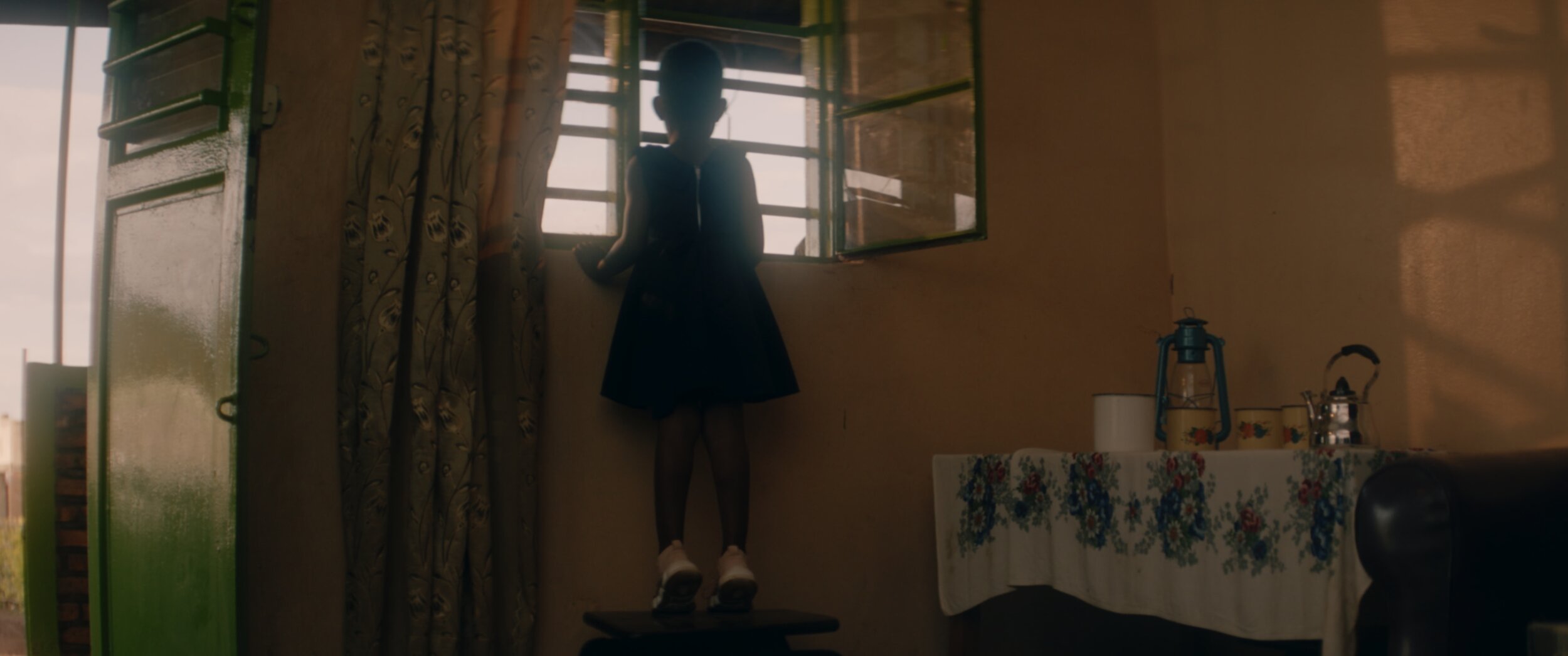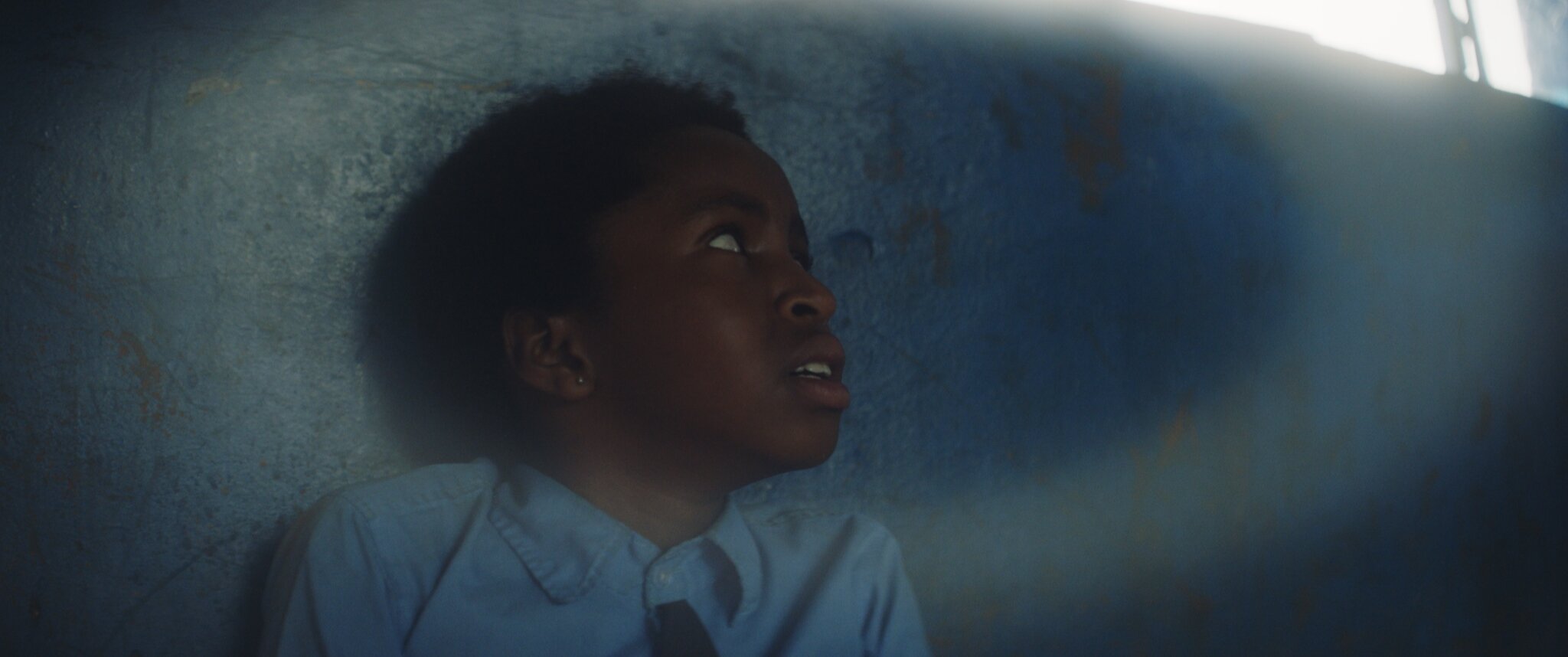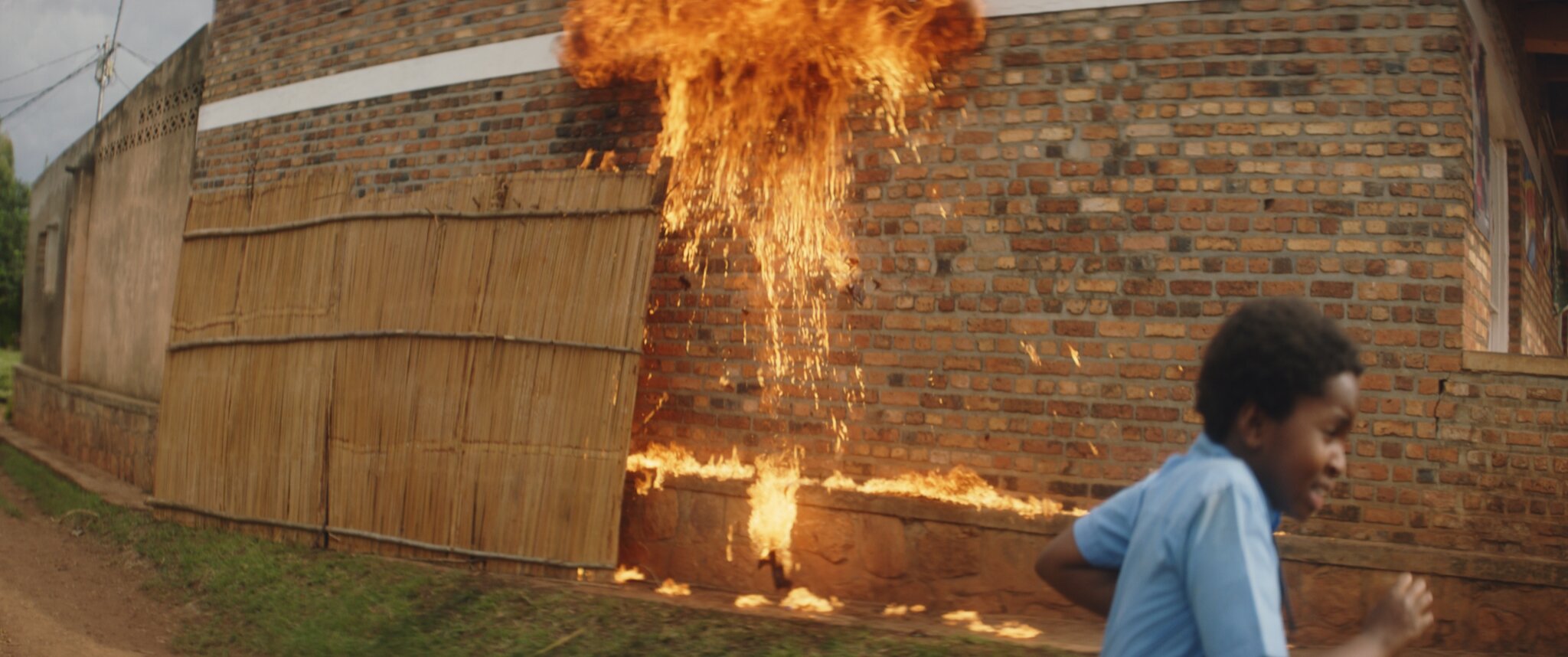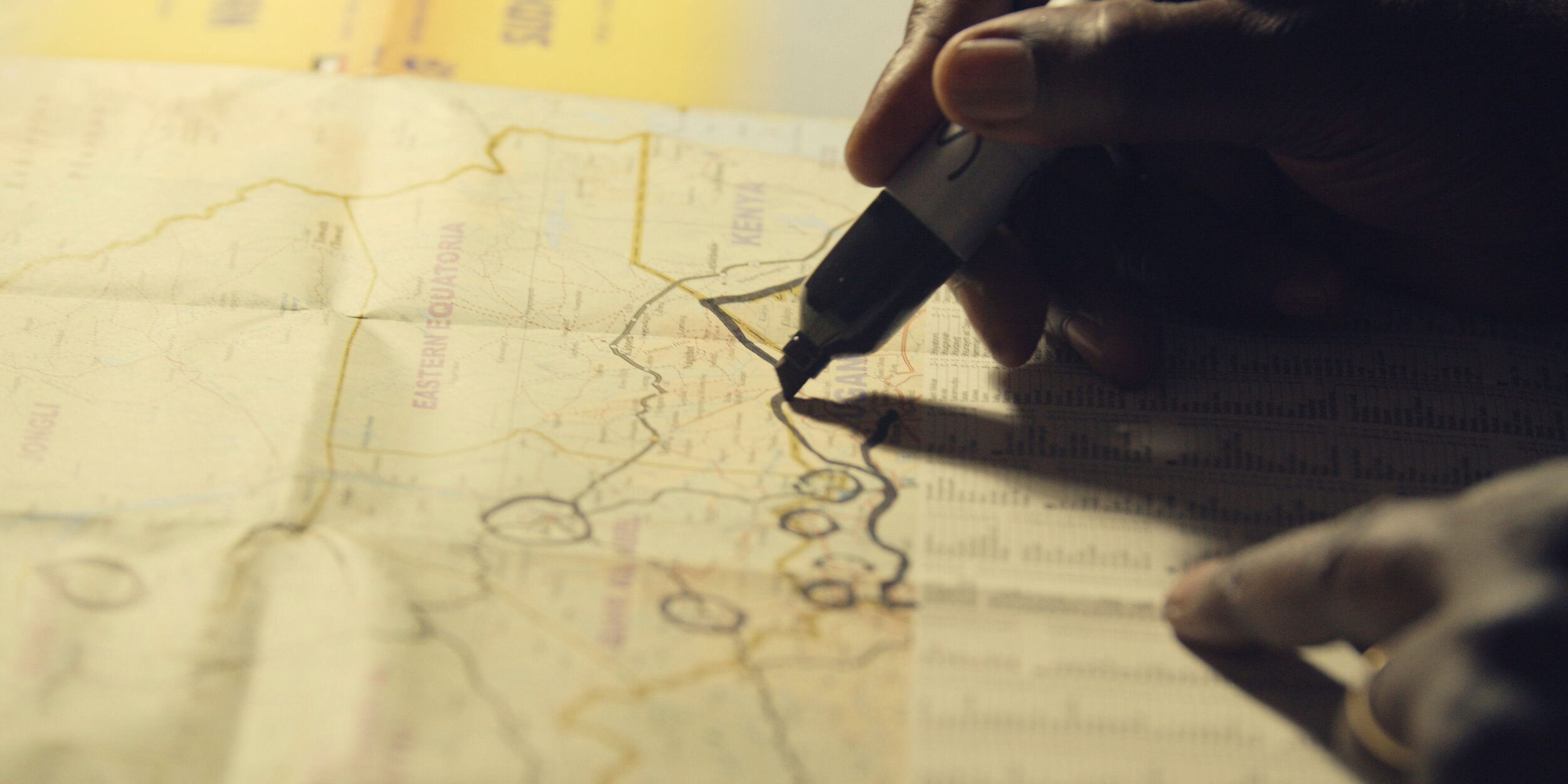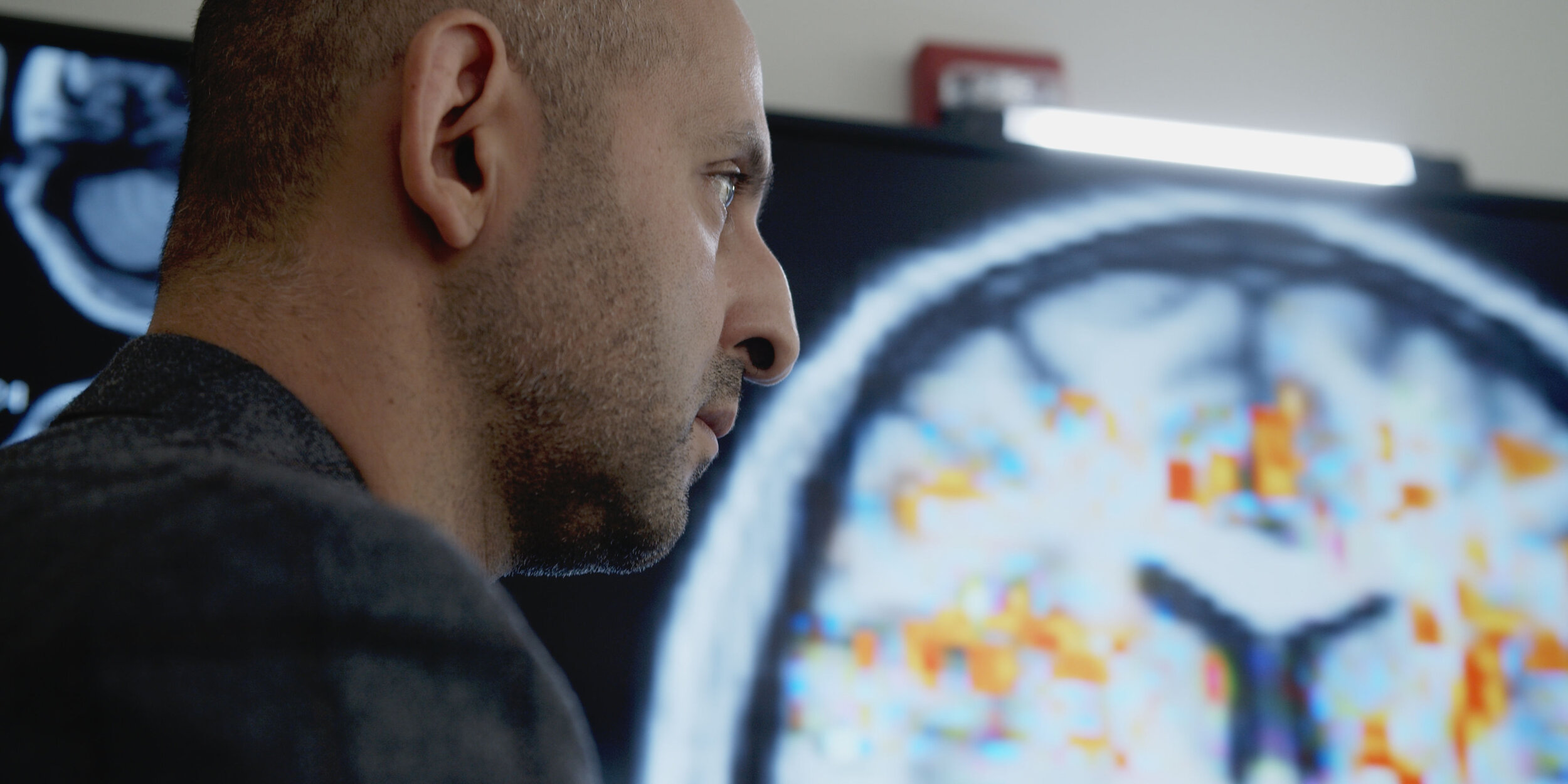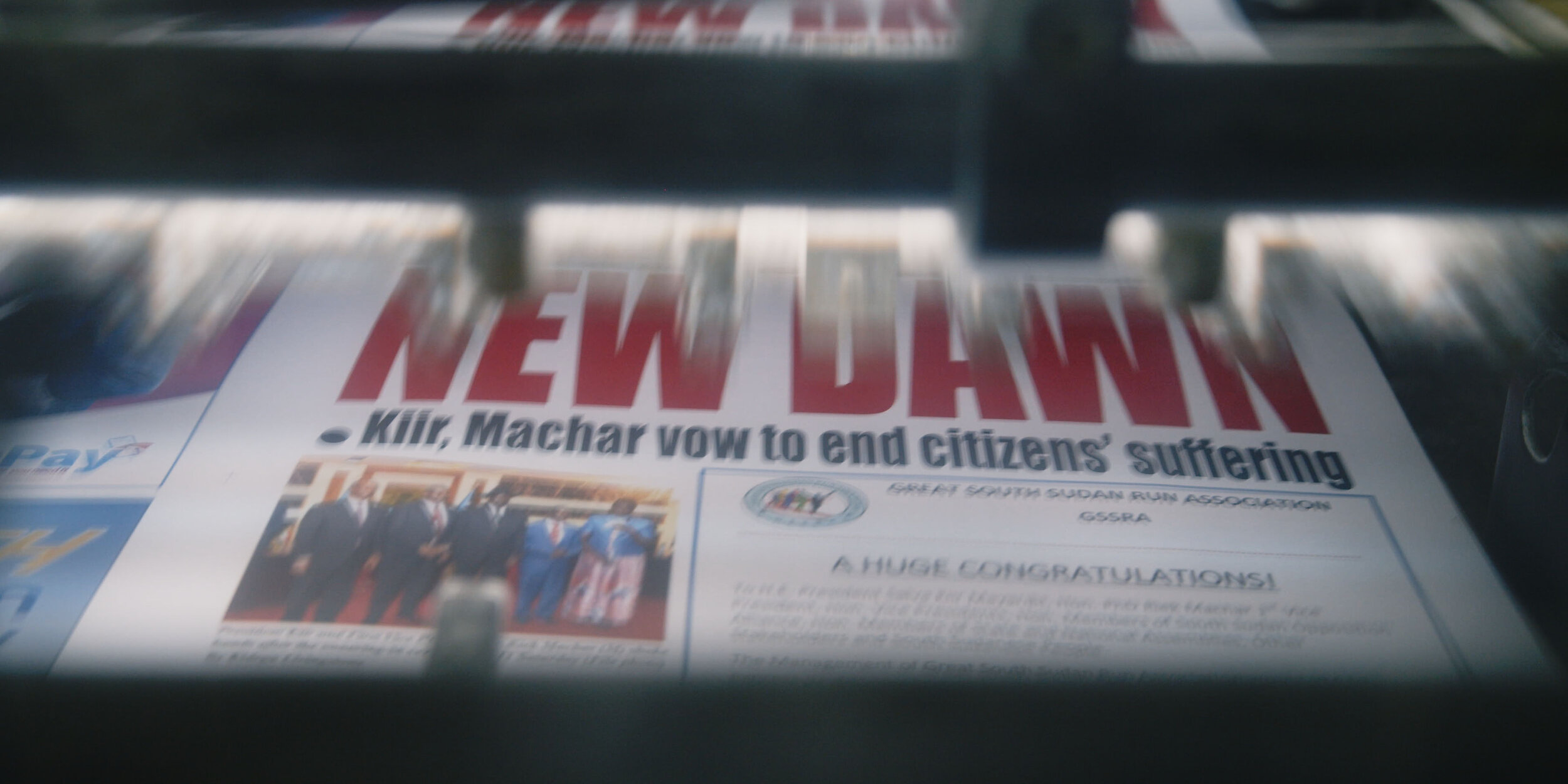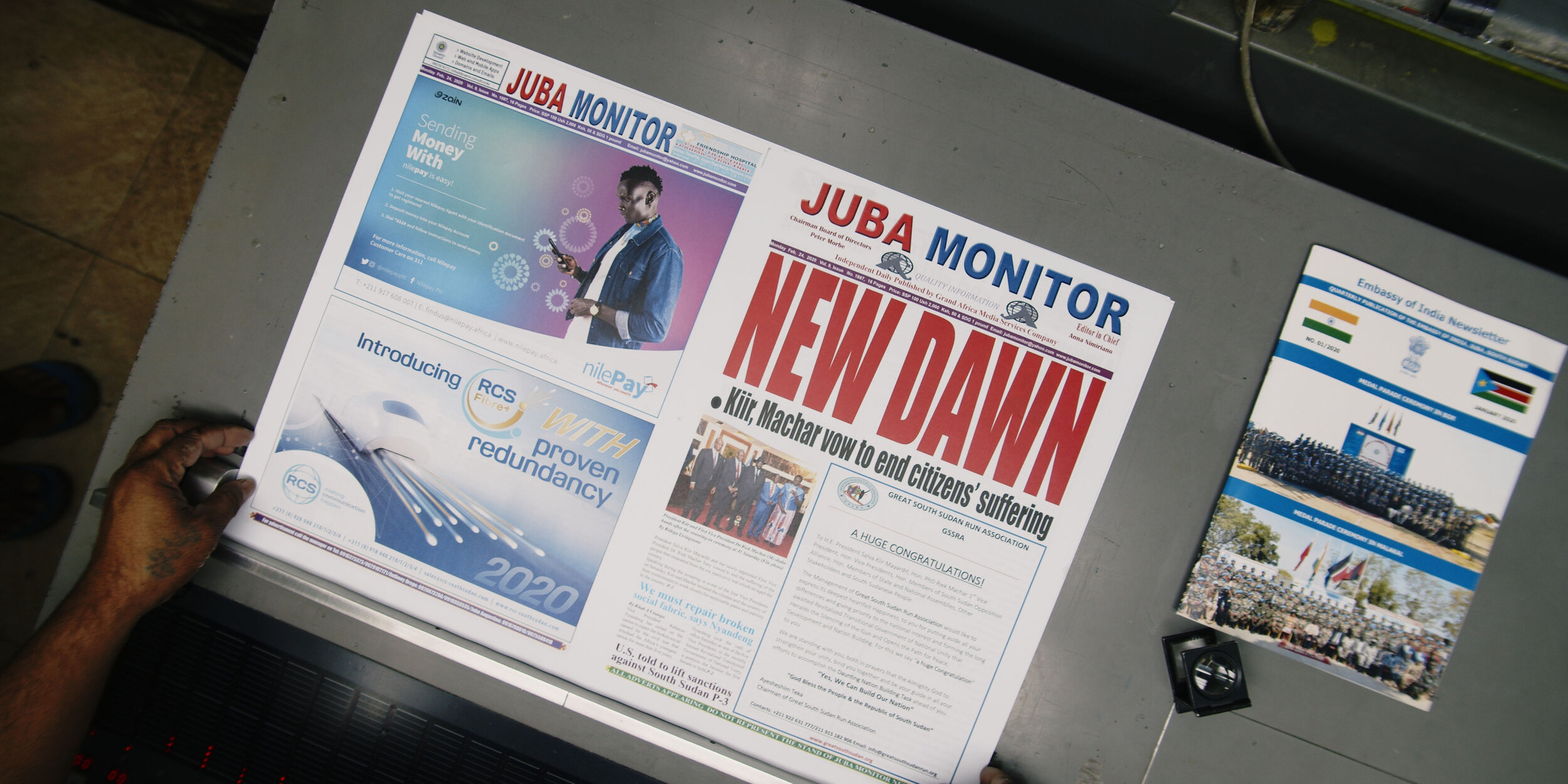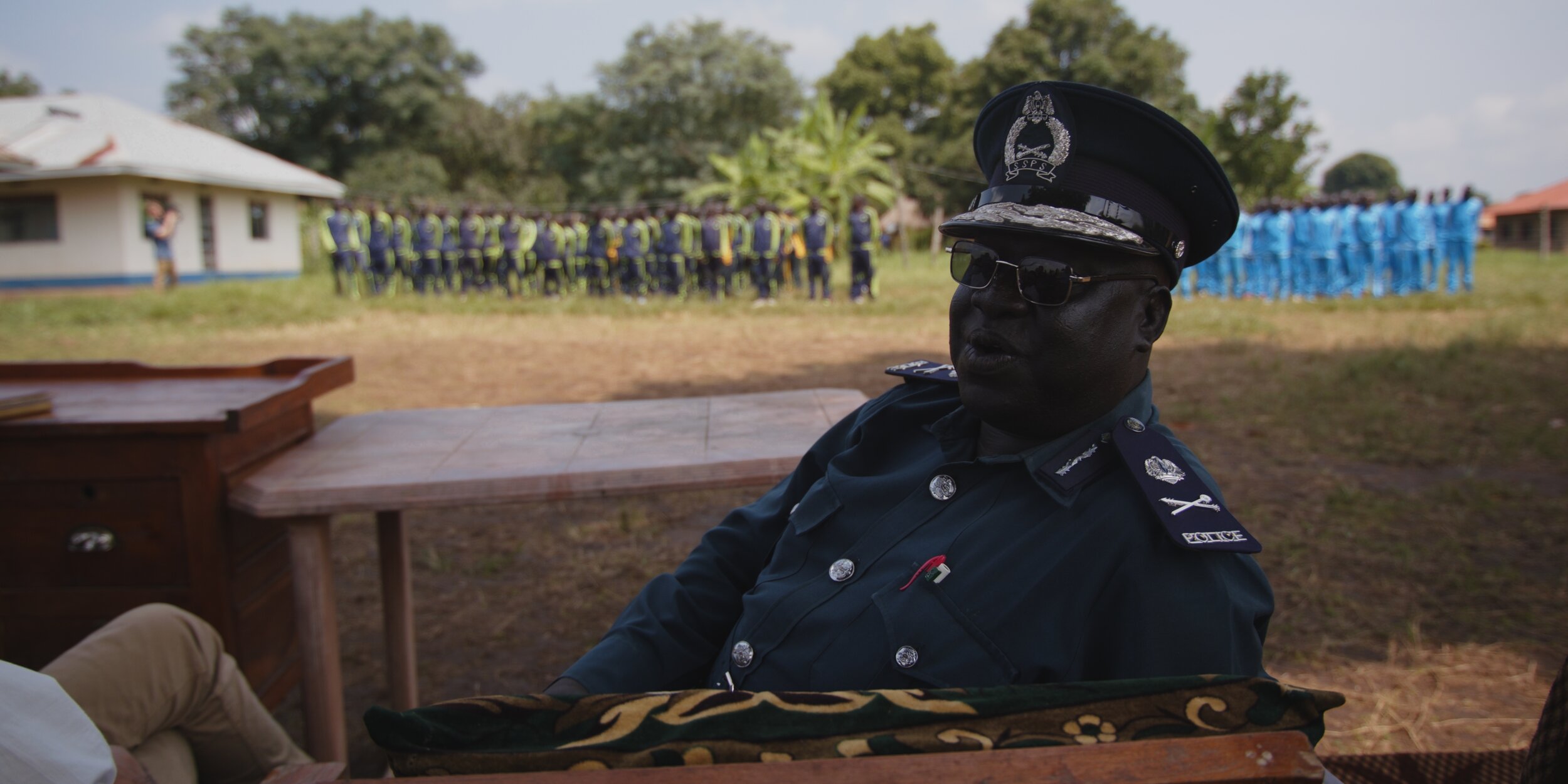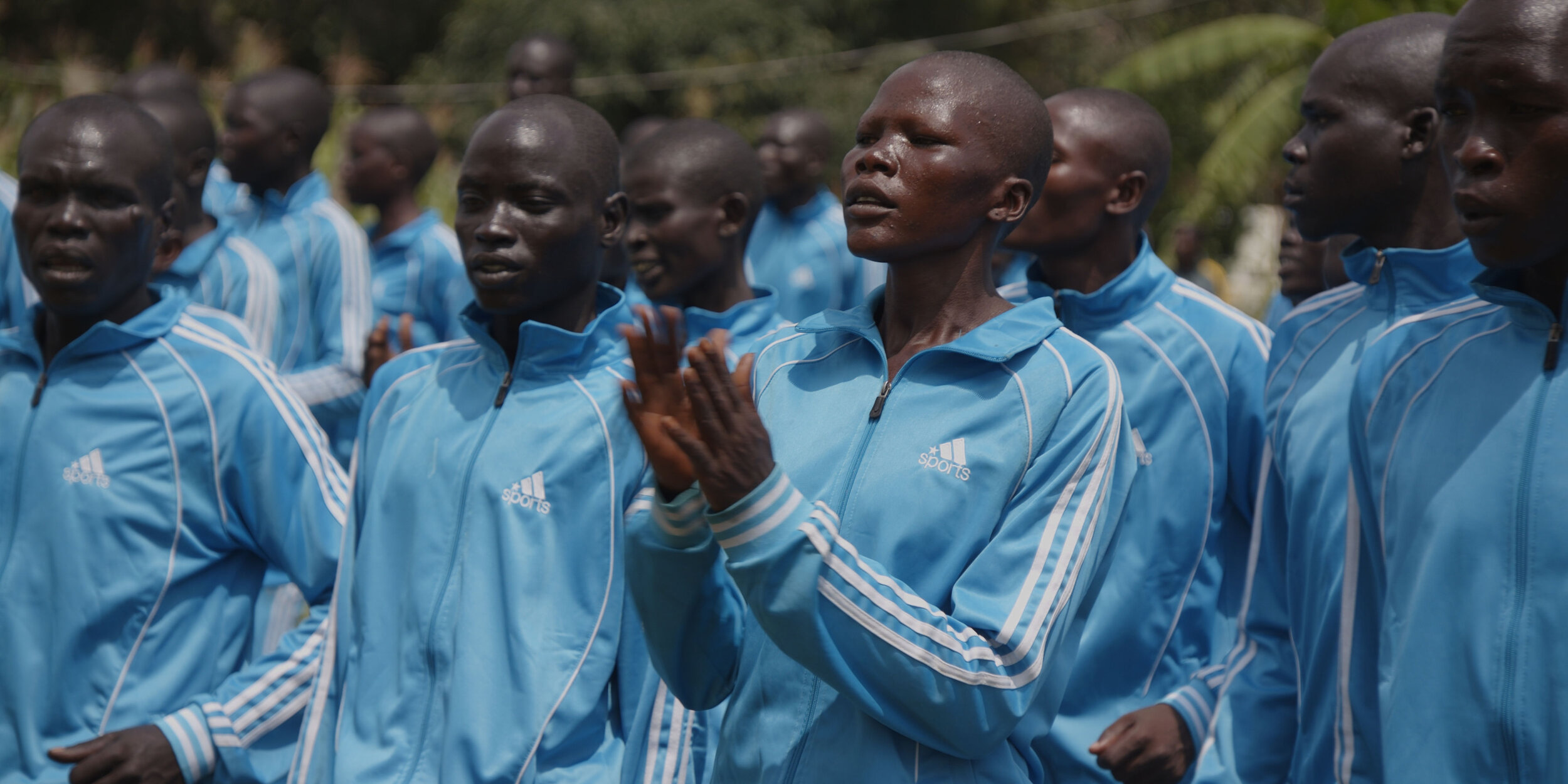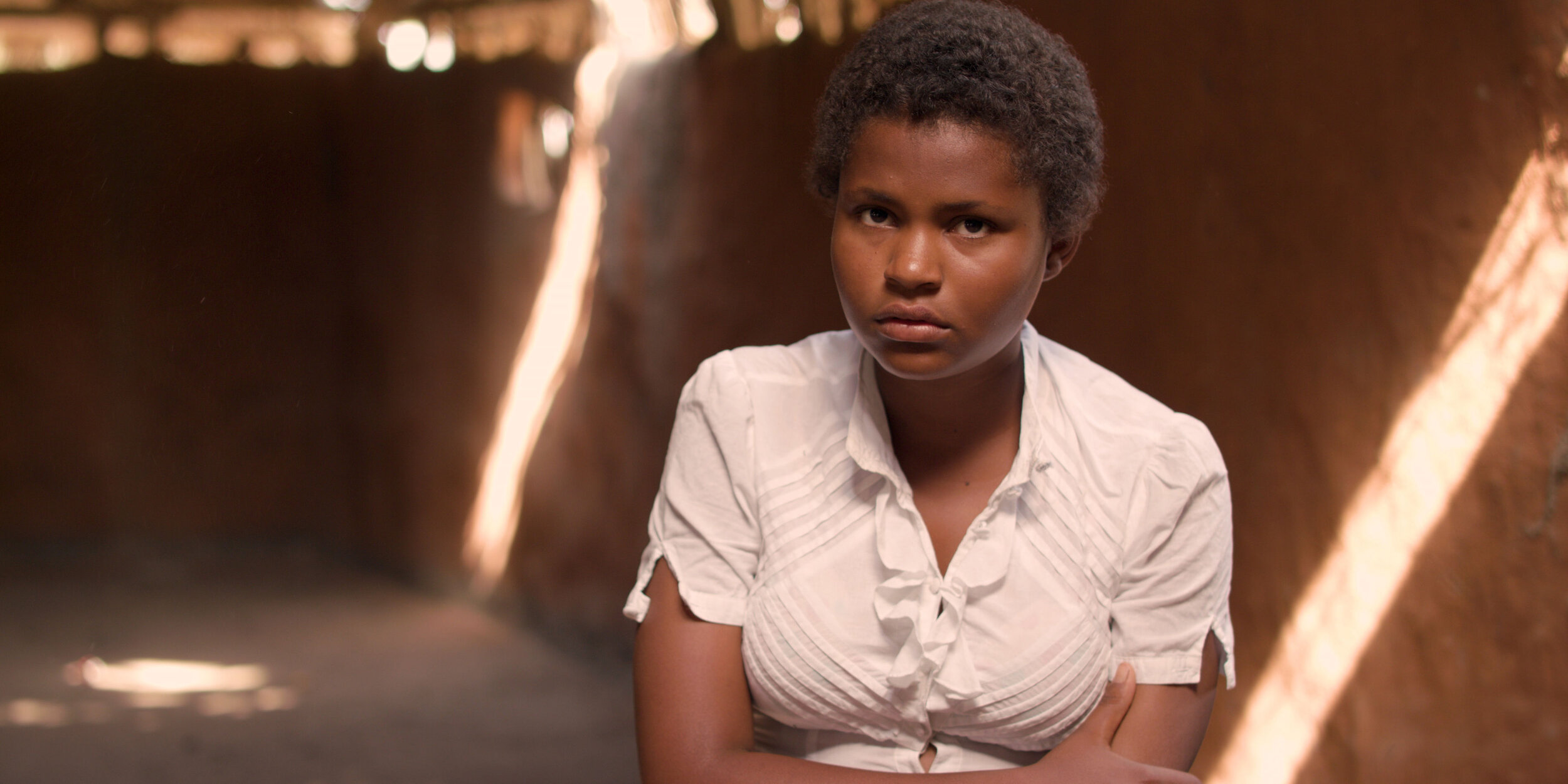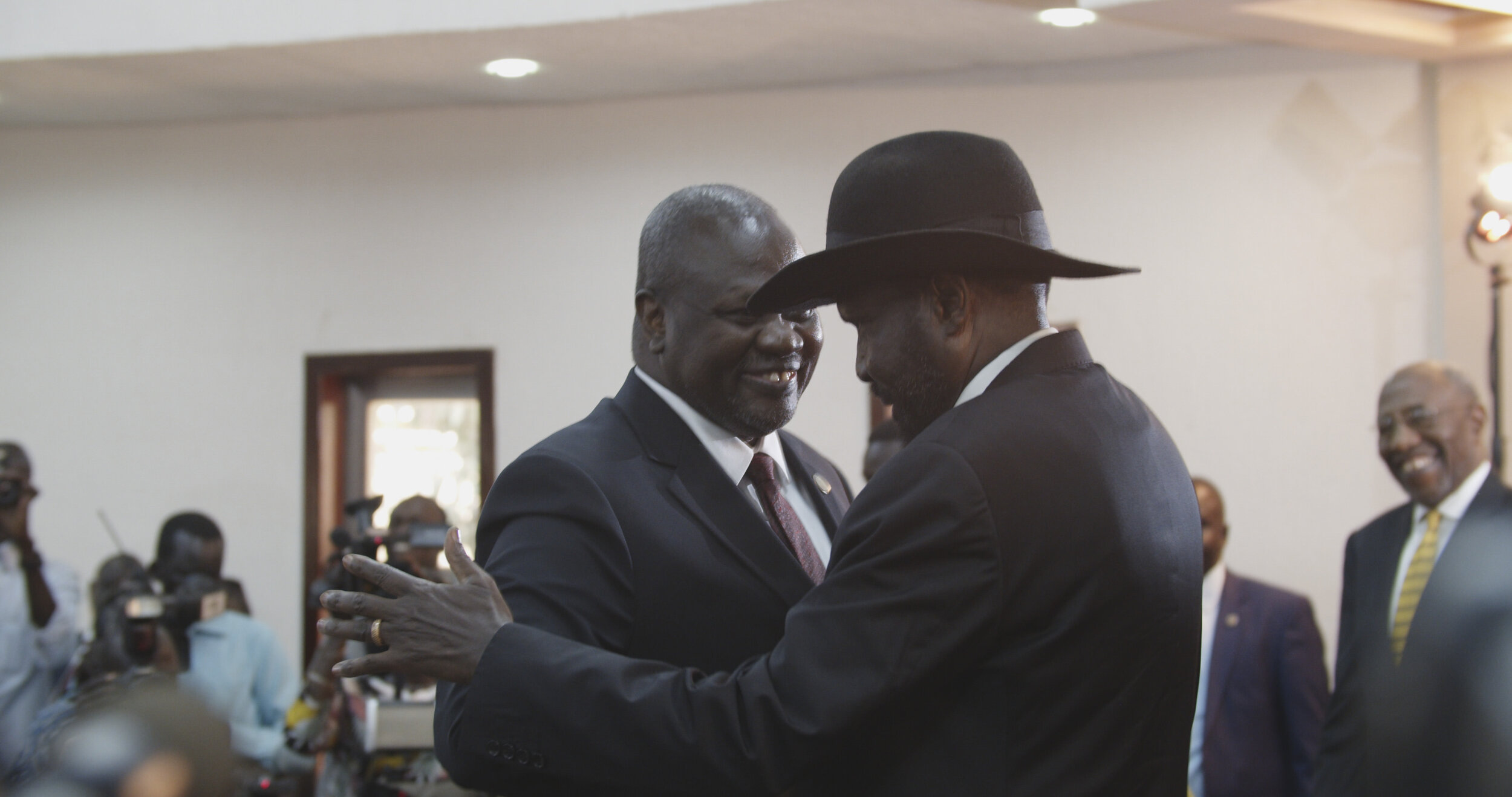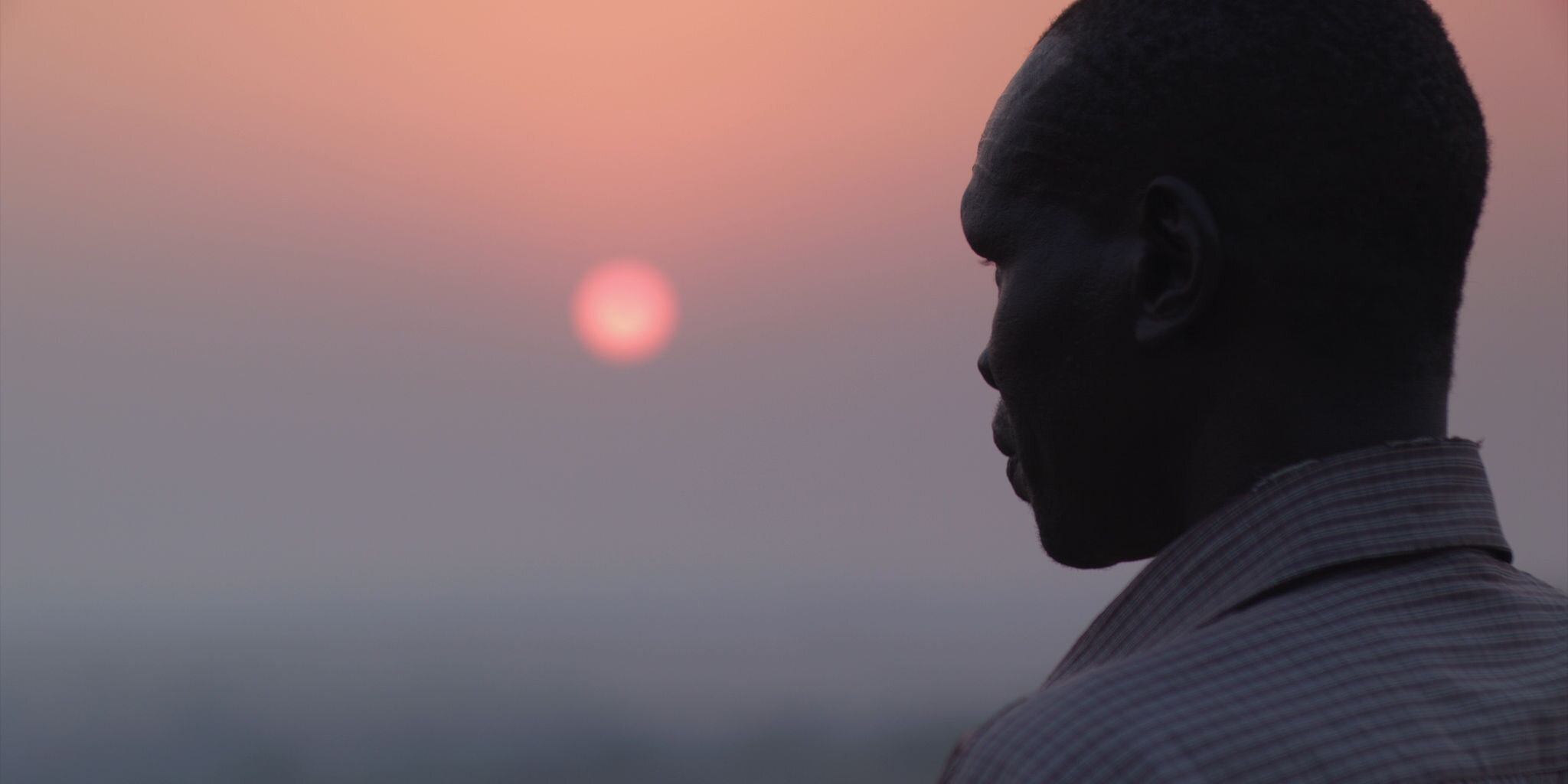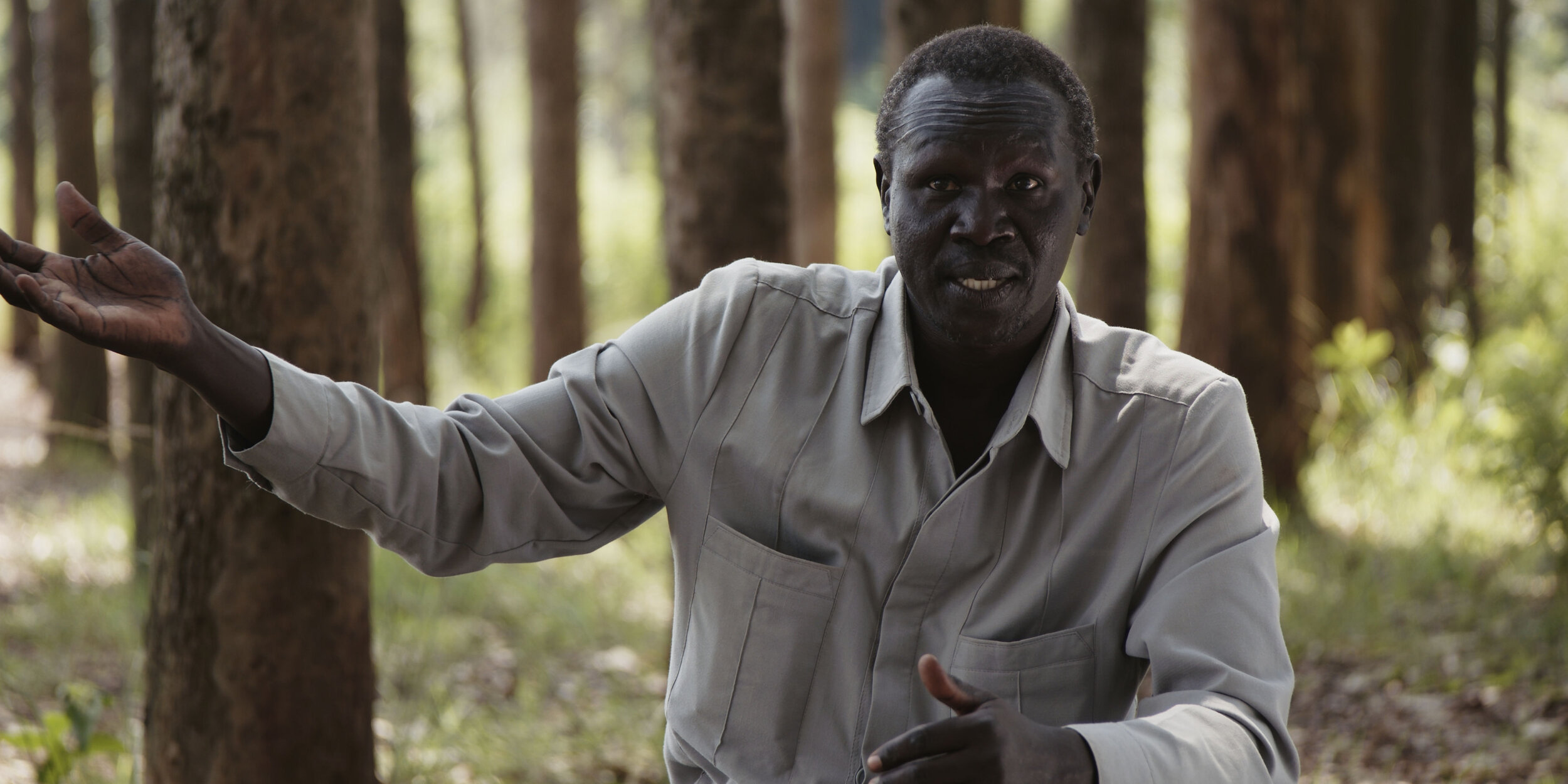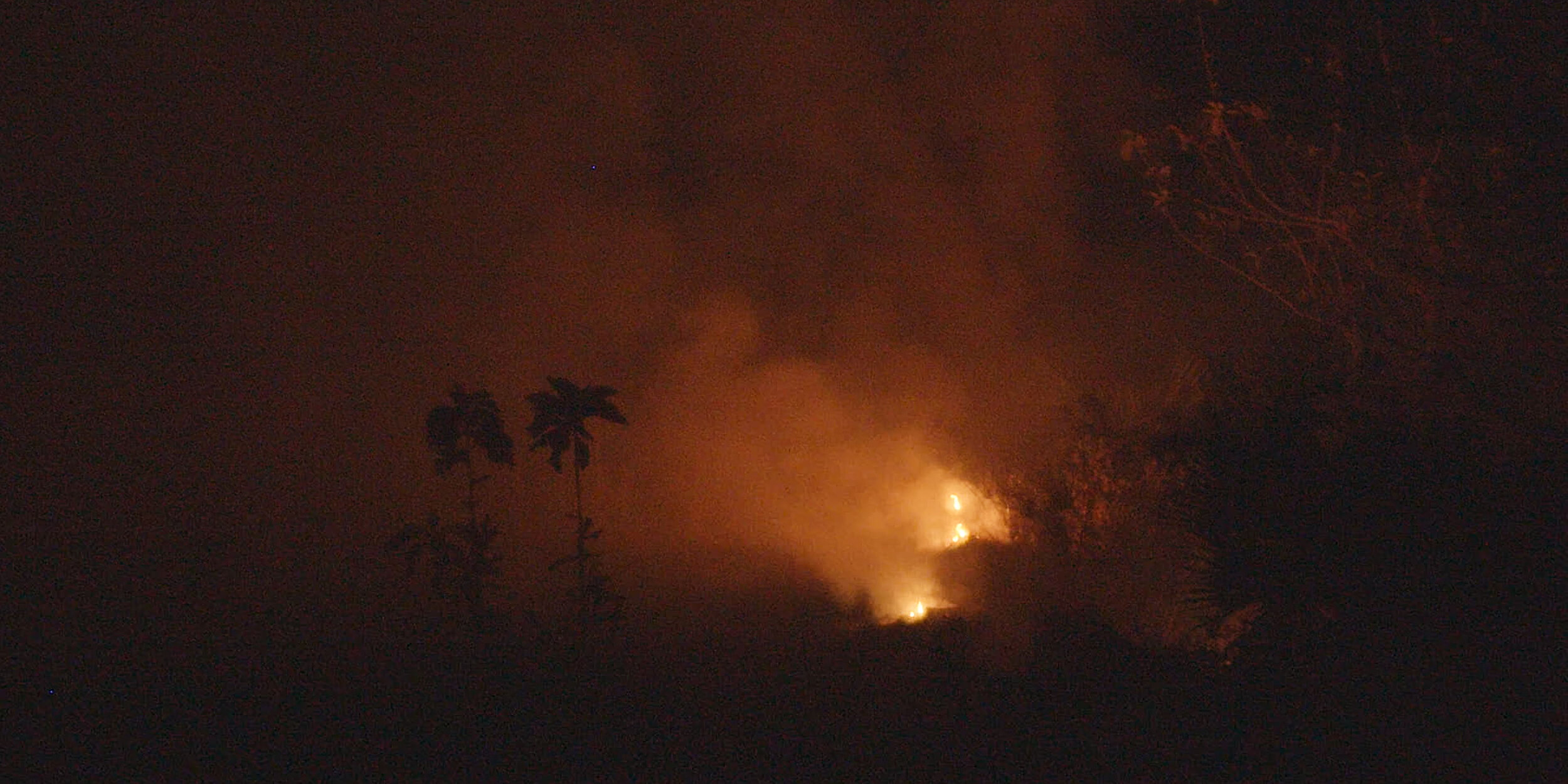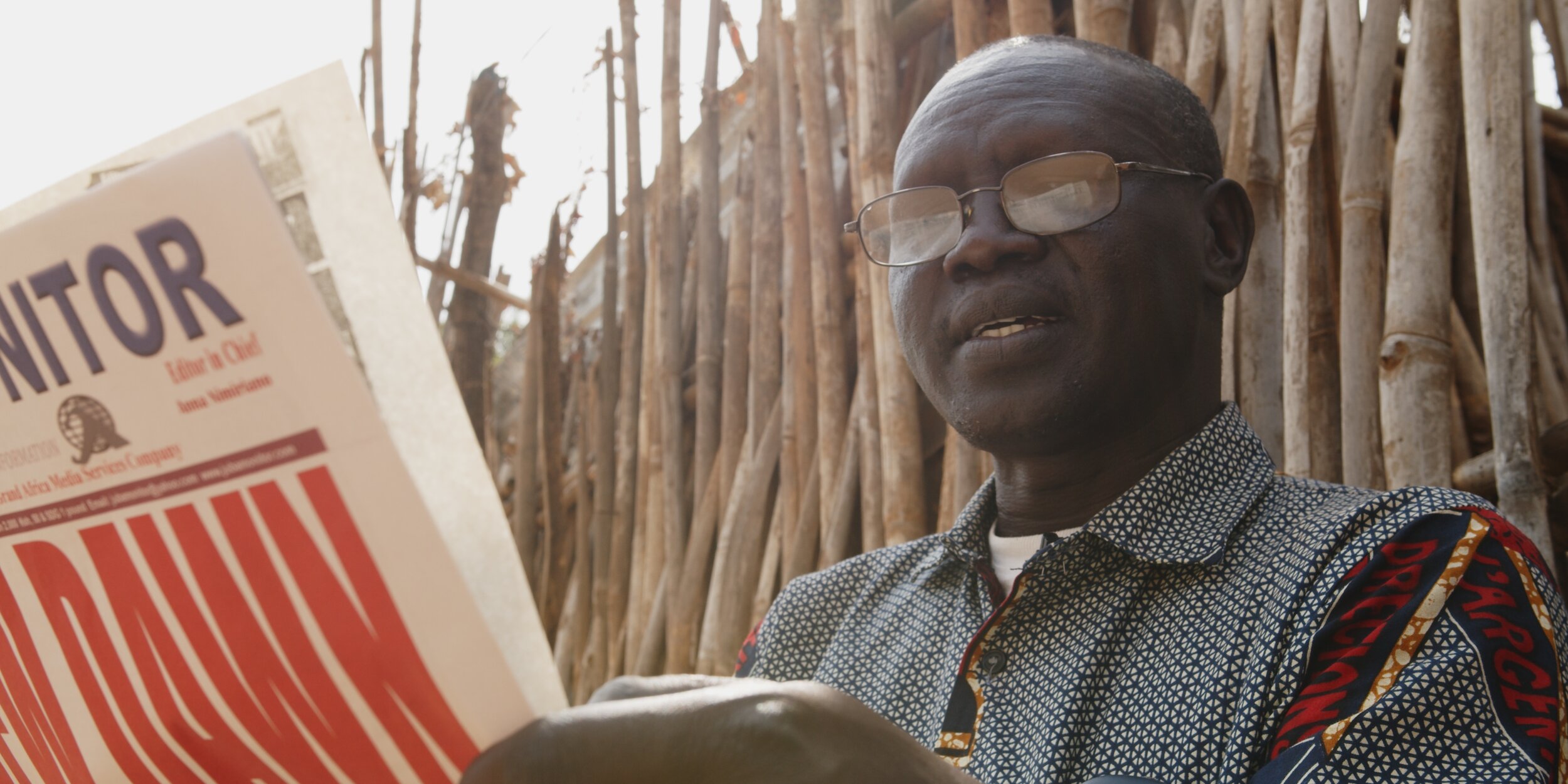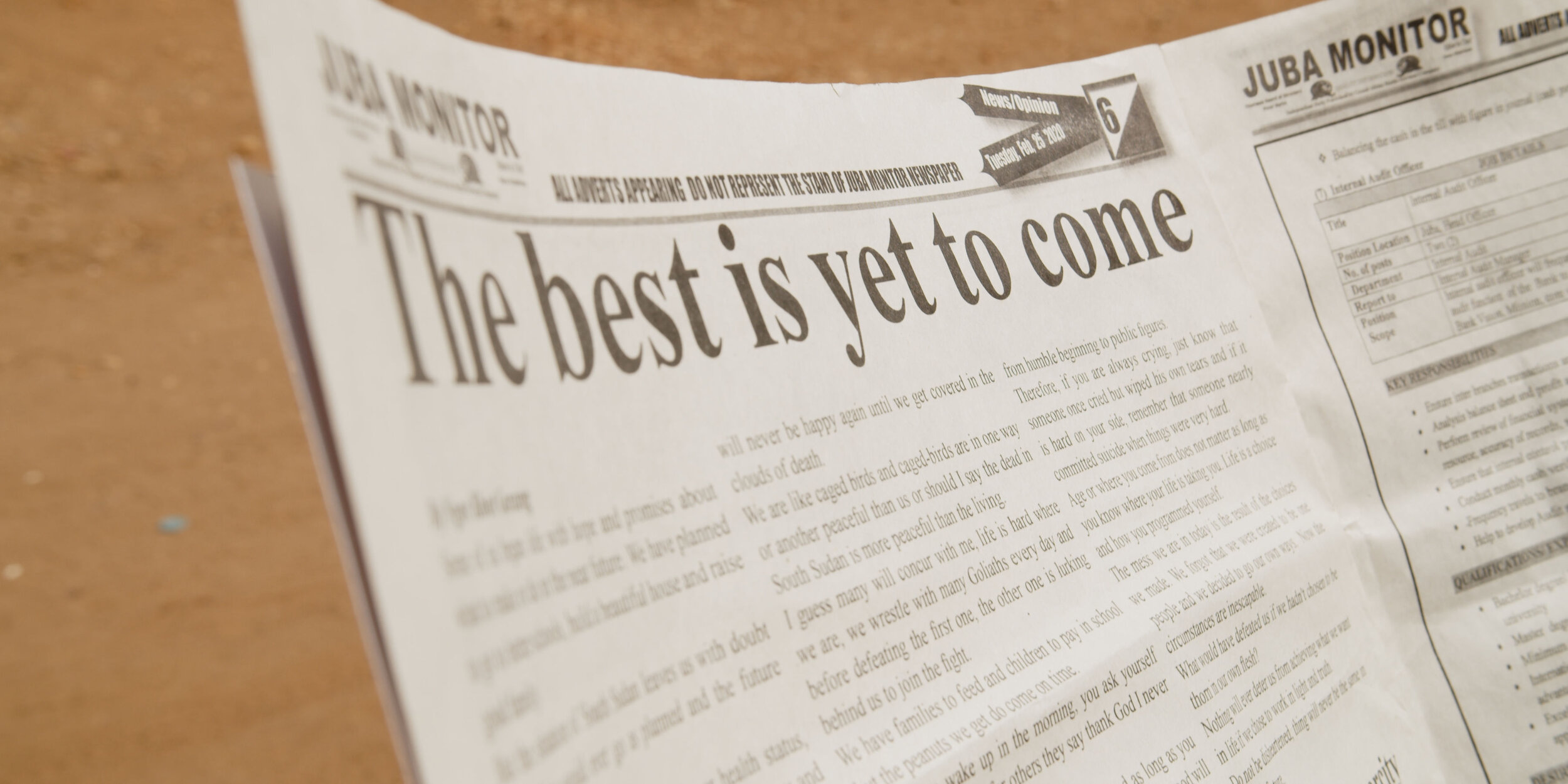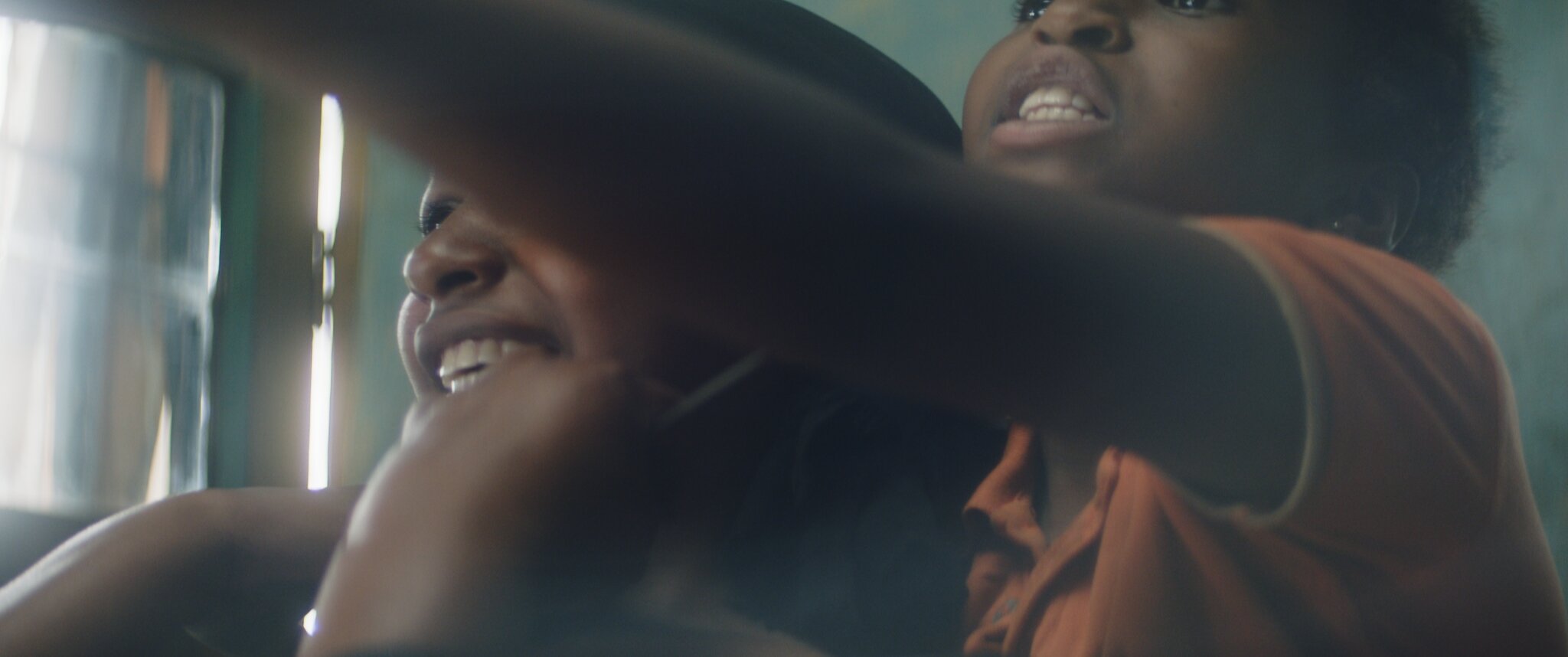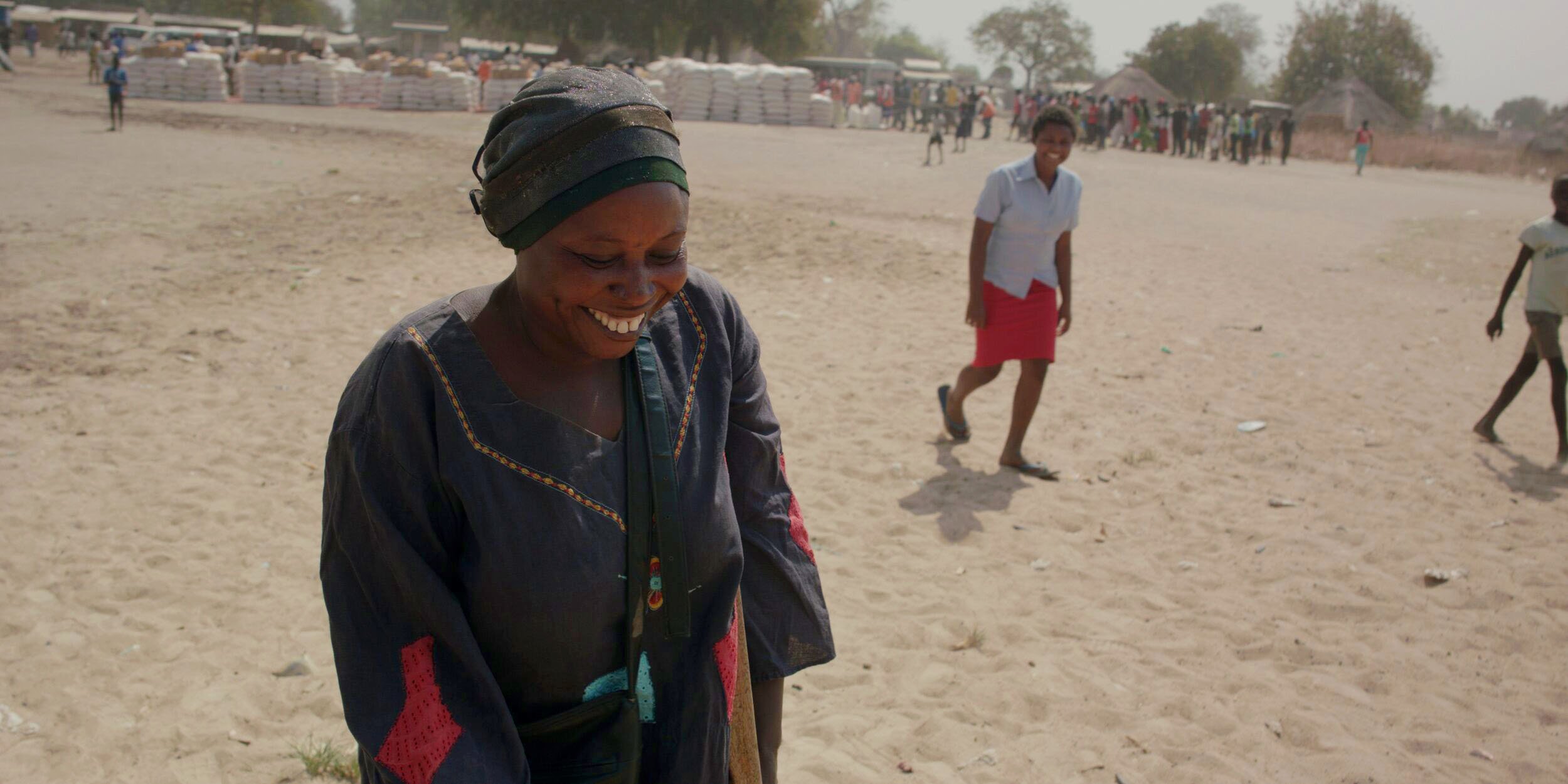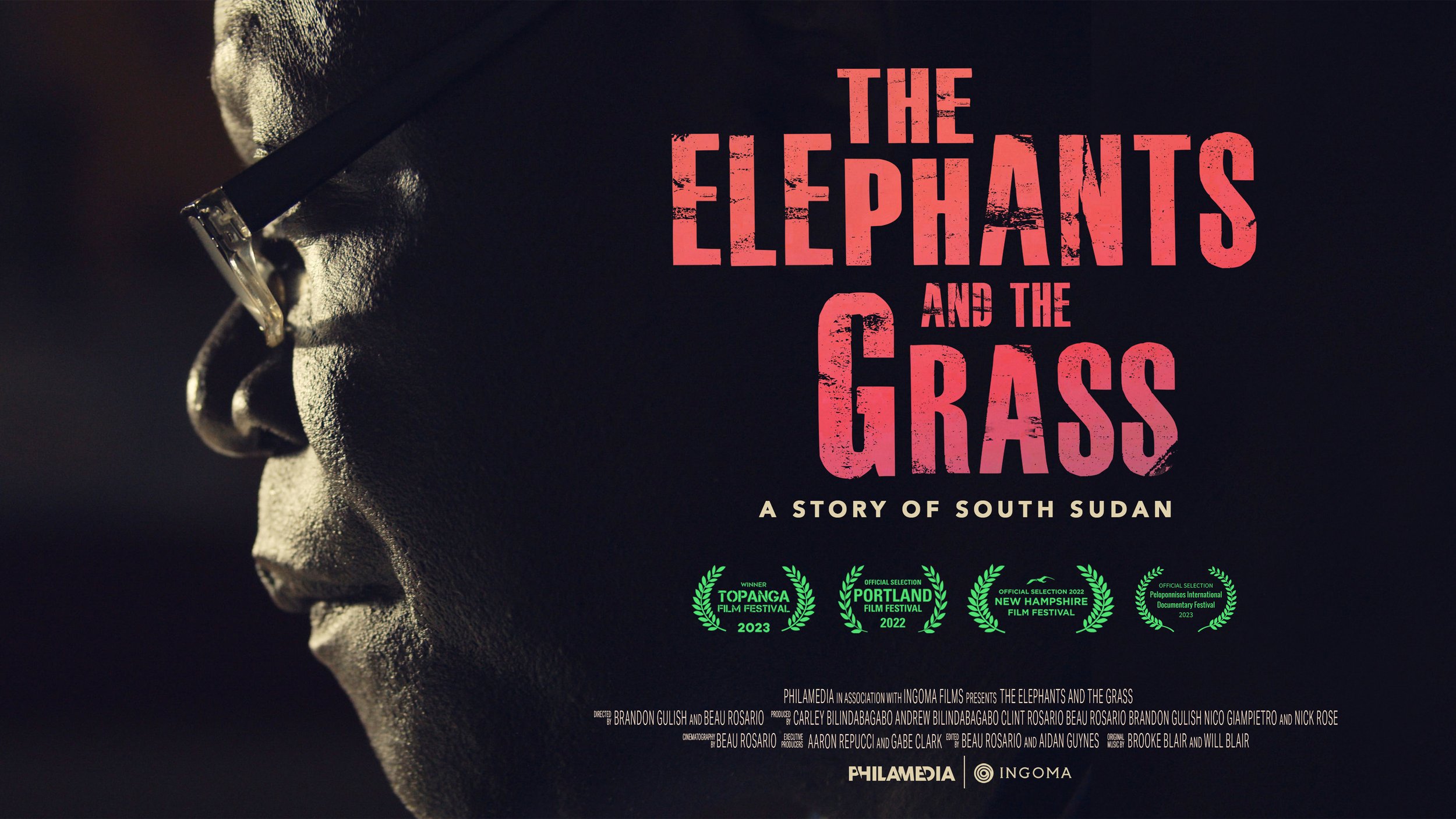

Stream Now on Apple TV, Prime Video and YouTube
TRAILER
See the full film at the above links.

“A brutally intimate portrait of war.”
Quscondy Abdulshafi | FREEDOM HOUSE
The Elephants and the Grass chronicles the perilous journey of twelve-year-old Shamira Muhammed and her mother as they escape the civil war in South Sudan. The film captures their fight for survival during a 100-mile trek to a refugee camp in Uganda, braving numerous dangers. By combining dramatic re-creations with personal interviews, the documentary not only shares Shamira's story but also explores the wider context of South Sudan's conflict and its generational trauma. It highlights the resilience of those affected and celebrates the strength of women and children as key to the nation’s future.
“Because I was different, they wanted to kill me… then night came.”
Shamira Muhammed | Protagonist
Two storytelling approaches, woven together
1 - Memories
First are a series of memories. Shamira recalls the harrowing events that led to her living with her mother in a refugee camp. Her journey is visualized through cinematic re-creations and captioned in her handwriting. THE ELEPHANTS AND THE GRASS breaks up the documentary with these dramatic short-films.
2 - Vérité, Archival, Personal Interviews
In between the re-creations are a mix of present-day vérité scenes, archival footage, and personal interviews. Refugees, politicians, global experts, and neuroscientists weigh in on the current state of South Sudan, the effects of ethnic genocide, and the displacement of its citizens. These sections connect Shamira’s journey with the larger story of South Sudan.

Meet the people of the film…
Shamira Muhammad - Our main subject, a refugee from South Sudan
Yasmin Ramadan - Shamira’s mother, former lawyer
Bishop Elias Taban - Community Leader, Activist in Yei, South Sudan
President Salva Kiir + VP Riek Machar - South Sudan’s feuding leaders
Peter Biar Ajak - Defector, Former South Sudan Policy Advisor
Tanja Jovanovic, Arash Javanbakht - Psychiatrists, Trauma Experts
Simon Peter - Shamira’s Teacher, Returnee
John Prendergast - Founder of The Sentry, forensic banking investigative unit
Anna Cavell, Sam Mednick - Journalists
THE TEAM
Beau Rosario and Brandon Gulish are the Co-Directors of The Elephants and the Grass. They have years of experience as filmmakers, but what first took them to South Sudan was water. While volunteering for an organization that impacts the lives of women in South Sudan through clean drinking wells, they met Shamira and her mother Yasmin. They immediately connected with these inspiring women, seeing elements of their own mothers, daughters, and wives. Being ill-prepared to tell their story alone, they have leaned heavily on a diverse team that includes South Sudanese men and women, a Rwandan production team, and experts from around the world.
Clint Rosario is a Producer with Philamedia, managing projects from the company’s larger commercial work, to unscripted content like The Elephants and the Grass. He enjoys the relational and strategic elements of producing in the field, as well as seeing how our teams translate stories to the big screen. Serving the kids of the local Philly community and exploring the world are some of Clint's biggest inspirations and favorite ways to spend his time.
Andrew Bilindabagabo is a Director/Producer from Rwanda. Having studied film in the US, and now living in Pennsylvania, Andrew’s focuses are in commercial filmmaking and geo-political documentaries in East Africa. He helped organize a team of Rwandan filmmakers to help tell Shamira’s story and consulted on how to approach this unique story with the cultural sensitivity of someone who’s own family survived a brutal war.
Carley Bilindabagabo is a Producer from Lancaster, PA with Ingoma Group. Carley’s talents were vital in filming internationally. Her background made her uniquely qualified to help oversee a production that featured many young women in Central and Eastern Africa.
100 Pixels is a production company in Kigali, Rwanda. The team is made up of men and women who work to not only support outside productions but also to tell engaging stories about the people of Rwanda. They were vital in helping shape the nuance of telling a story about personal trauma experienced by men and women in a violent civil war.
Gabriel Ruot Tot worked as a fixer and consultant during production in Uganda. As a South Sudanese refugee, himself, Gabriel spent many long days helping to translate and understand more deeply the stories shared in the Rhino Refugee camp.
Acknowledgment
It must be stated that many South Sudanese men and women risked a great deal to help support and contribute in the making of this film. Due to political pressure, and concern for personal safety, some have asked to remain anonymous at this time. Our appreciation of their time, resources, and wisdom cannot be understated. We look forward to a future when the tension subside and we can highlight these individuals properly.
























